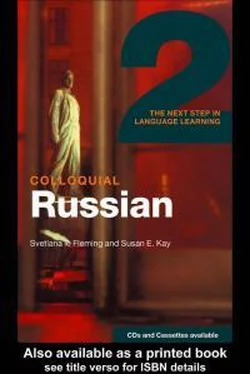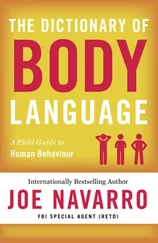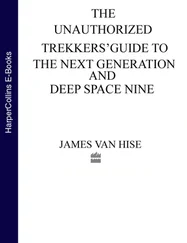bylańa (plo´]ad;) o´kolo Beĺogo do´ma. 6 O (kto) ide¨t reh;? O
2
(li´dery) perevoro´ta? Q nihegońe zna´[ o (oni´). 7 El;cin byl v 3
4
(Beĺyj dom) a organiza´tory perevoro´ta byĺi v (Kreml;).
5
6
7
Vocabulary ♦
8
9
zaseda´t;
to sit (of parliament)
30
1
2
Exercise 11
3
4
Answer the questions in Russian.
5
6
1 Gde naxo´ditsq Beĺyj dom?
7
2 Gde byl Gorbahe¨v vo vre´mq perevoro´ta?
8
3 Gde naxo´ditsq Krym?
9
4 Gde zasedaét parla´ment?
40
5 Gde byla´ milićiq?
1
6 Gde byl El;cin?
421111
7 Gde byĺi organiza´tory perevoro´ta?
28
|
Russia and the Russian language
Reflexive pronouns
In addition to the personal pronouns and possessive pronouns referred to above, there is the reflexive pronoun sebq´ and the reflexive possessive pronoun svoj. Sebq´ means myself, yourself, himself etc.
referring back to the subject of the verb. In consequence, it has no nominative. The other forms, common to all genders, singular and plural are: acc. / gen. sebq´; dat. sebe´; instr. sobo´j; prep. sebe´: Ona du´maet toĺ;ko o sebe´.
She thinks only of herself.
The endings of svoj are the same as those of moj and tvoj. It translates any possessive – ‘my’, ‘your’, ‘his’ etc., provided it refers back to ownership by the subject of the verb.
On l[
´ bit svo[ŕabo´tu.
He loves his work.
To use ego´ in this sentence would mean it was someone else’s work.
In sentences with a first or second person subject svoj may be used as an alternative to the first or second person possessive: My l[
´ bim na´wu / svo[ŕabo´tu.
We love our work.
Sam
Sam is the emphatic pronoun ‘self’:
Onaśamaśdeĺala.
She did it herself.
The full declension is in the grammar summary.
Short form adjectives
The adjectives referred to earlier are all long or attributive adjectives.
There are also short or predicative adjectives. They are used only in the predicate of the sentence, separated from the noun or pronoun they describe by the verb ‘to be’:
Kni´ga bylaíntereśna.
The book was interesting.
To form a short adjective remove the -yj or -ij from the long adjective. This gives you the masculine. For the feminine add -a, for the
Rossiq i Russkij Qzyk
|
29
1111
neuter -o, and the plural -y: zdoro´vyj ‘healthy’ – zdoro´v, zdoro´va, 2
zdoro´vo, zdoro´vy. If the masculine form ends in two consonants 3
a vowel is sometimes inserted between them; intereśnyj –
4
intereśen.
5
Some adjectives, including those ending in -skij, have no short 6
form.
7
8111
Adverbs
9
10
Adverbs are formed in the same way as neuter short form adjectives.
1
By
śtryj ‘quick’ – byśtro ‘quickly’: on ide¨t byśtro ‘he is walking 2
quickly’.
3
4
Verbs
5
6
Compared with English, Russian has very few tenses: one present, 7
two future and two past. Verbs fall mostly into two conjugations, or 8
patterns of endings: first and second. First conjugation verbs may 9
often be recognised by their infinitive ending in -at; or -qt; : deĺat; 20111
‘to do, make’; terq´t; ‘to lose’. Second conjugation verbs more often 1
end in -it; or -et; : govori´t; ‘to speak’; smotre´t; ‘to look at’.
2
However, there are a small number of second conjugation verbs 3
ending in -at; and -qt; and irregular first conjugation verbs ending 4
in -it; , -et; , -ti. Note that tables of the endings on verbs are given 5
at the back of the book.
6
7
Formation of the present tense – first conjugation
8
Regular first conjugation verbs ending in -at; or -qt; – remove the 9
-t; from the infinitive and add: -[, -ew; -et, -em -ete, -[t: 30
1
2
deĺat;
3
4
q deĺa[,
my deĺaem
5
ty deĺaew;,
vy deĺaete
6
7
on / ona´ / ono´ deĺaet
oni´ deĺa[t
8
9
40
Remember that, as there is only one present tense in Russian, q deĺa[
1
may translate as either ‘I do’ or ‘I am doing’, dependent on the 421111
context.
30
|
Russia and the Russian language
In addition to regular first conjugation verbs there are also verbs which take regular first conjugation endings, but their present tense stem is different from the infinitive stem, so it has to be learnt.
Where the present tense stem ends in a vowel, the endings are the same as on deĺat; and, where it ends in a consonant, the endings are -u, -ew; , -et, -em, -ete, -ut. If the ending is stressed, e is replaced by e¨:
myt; ‘to wash’
q mo´[
my moém
ty moéw;
vy moéte
on / ona´ / ono´ moét oni´ mo´[t
pisa´t; ‘to write’
q piwu´
my pi´wem
ty pi´wew;
vy pi´wete
on / ona´ / ono´ pi´wet
oni´ pi´wut
idti´ ‘to go’
q idu´
my ide¨m
ty ide¨w;
vy ide¨te
Читать дальше












